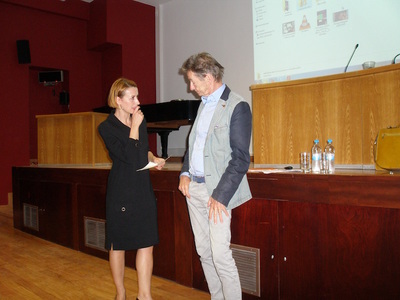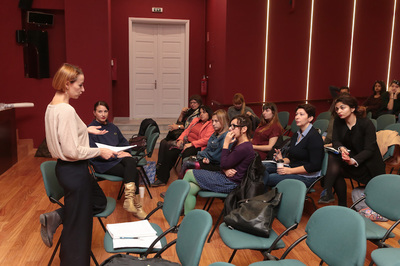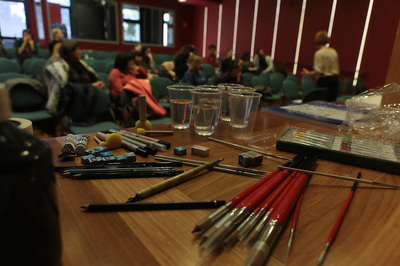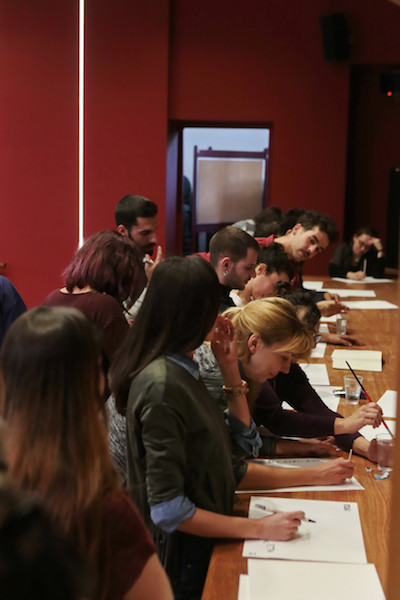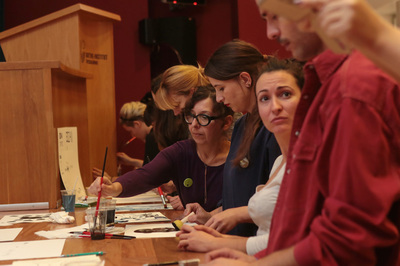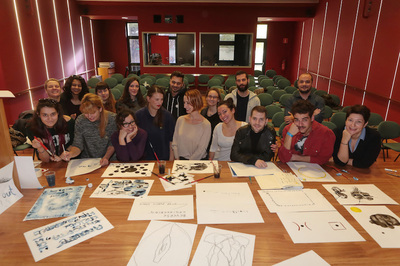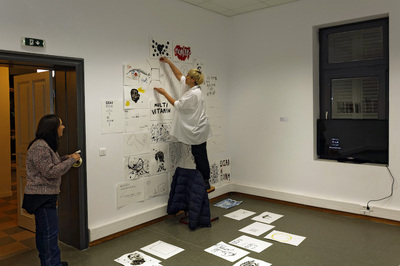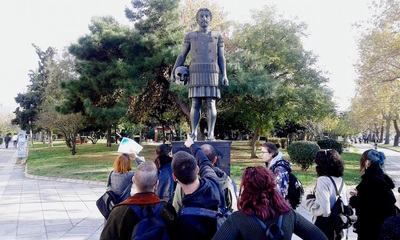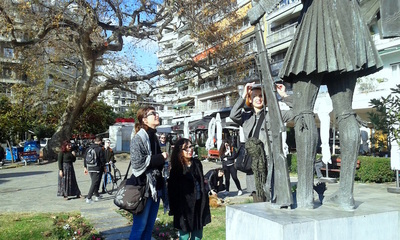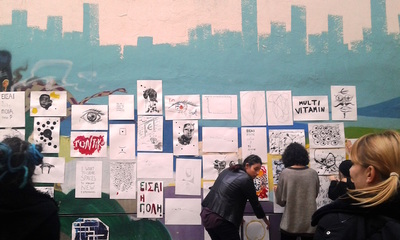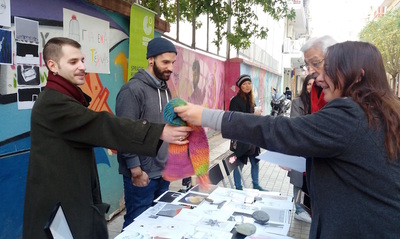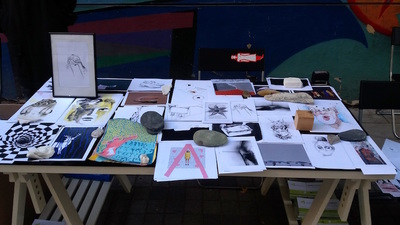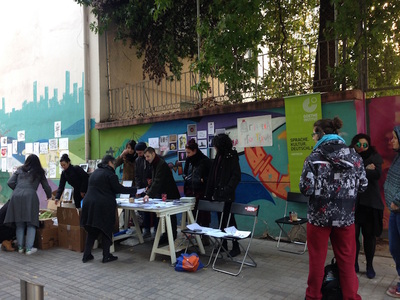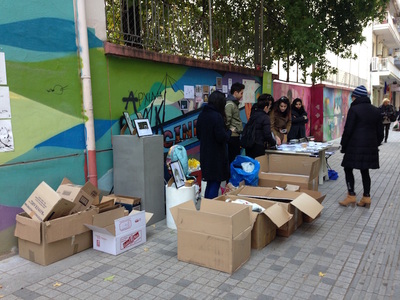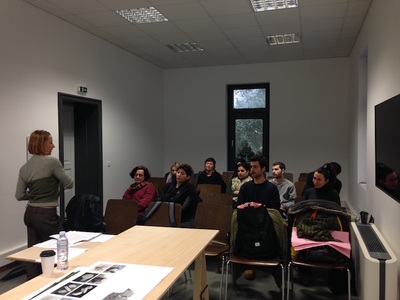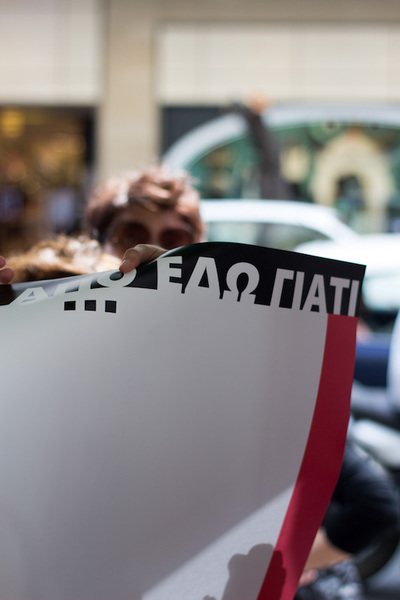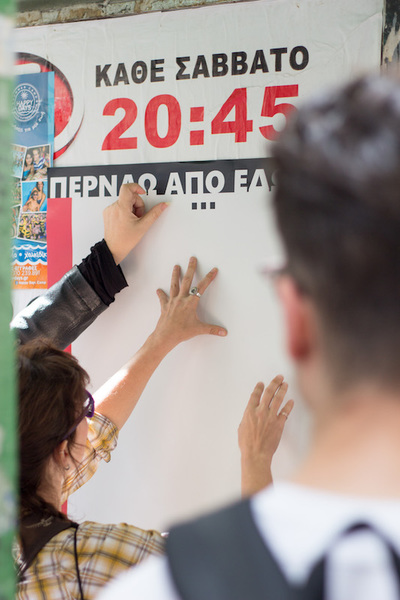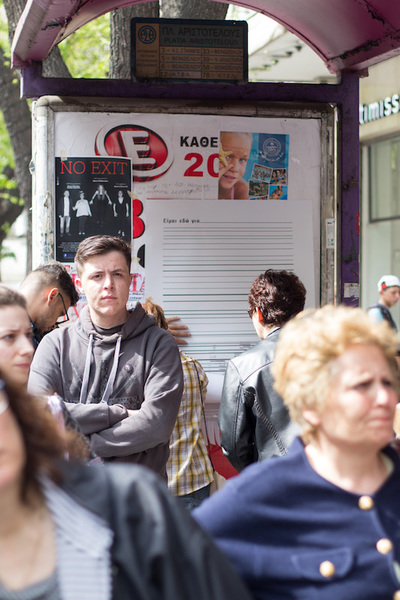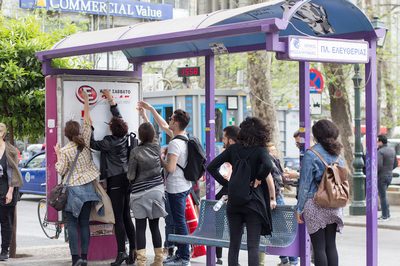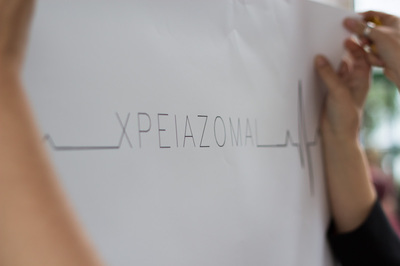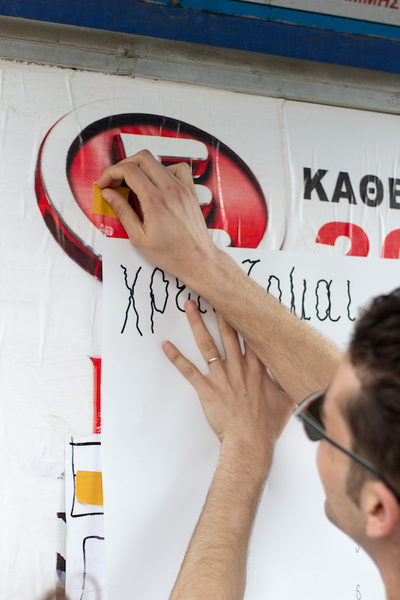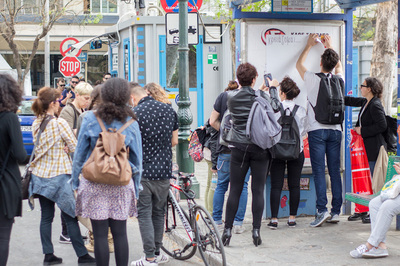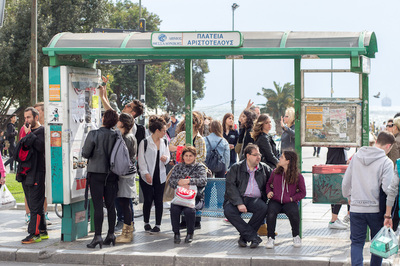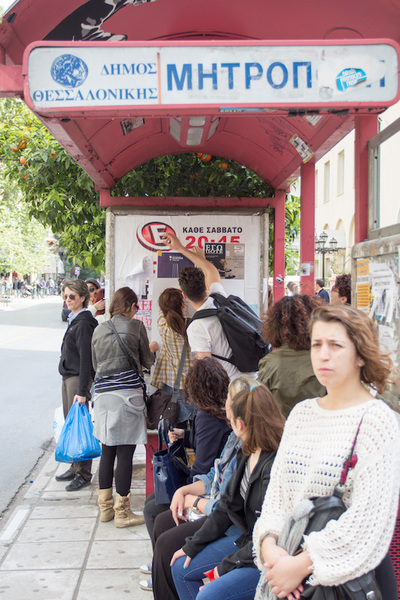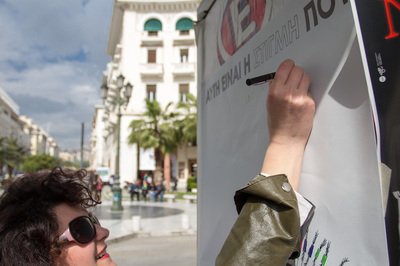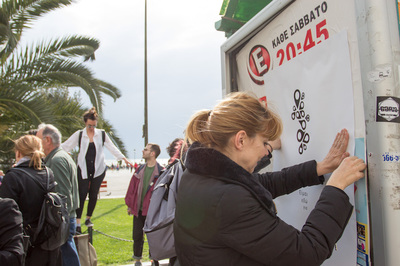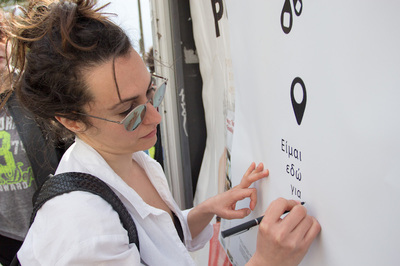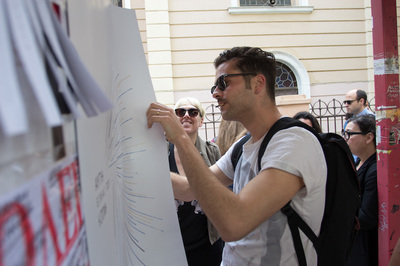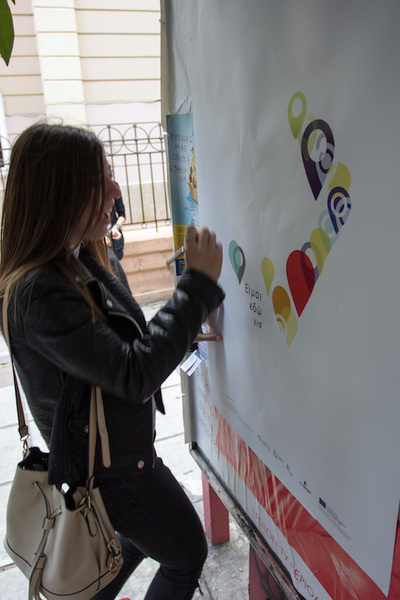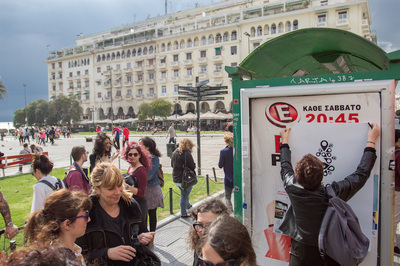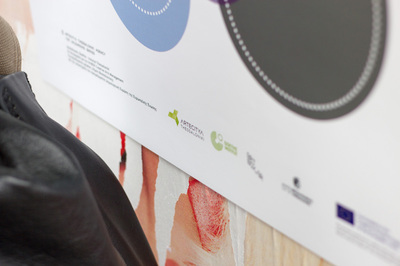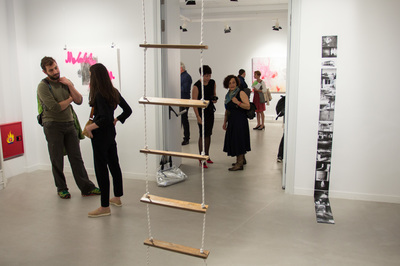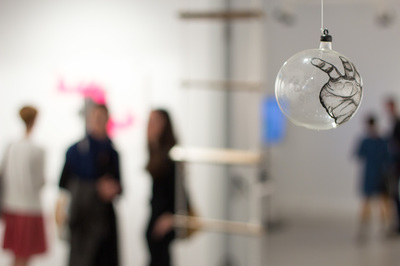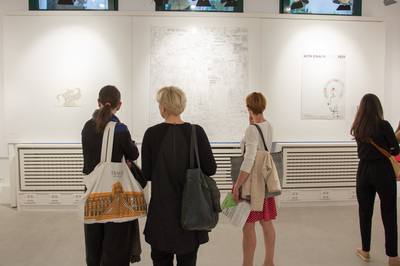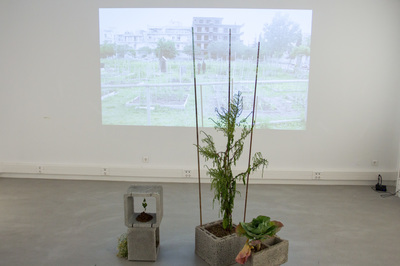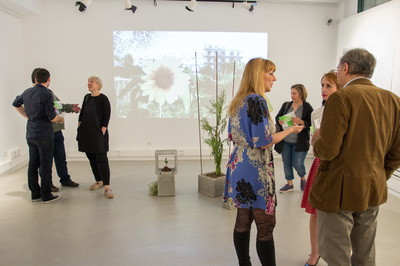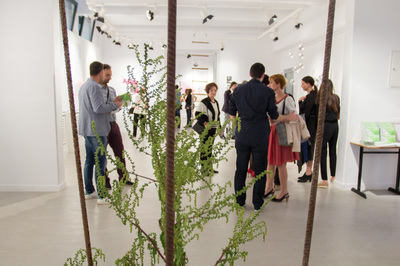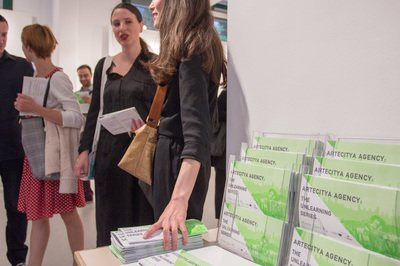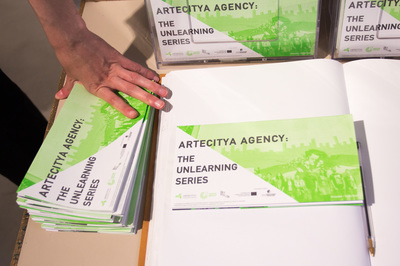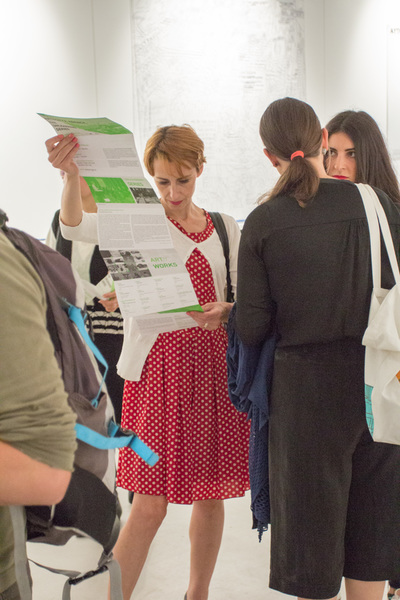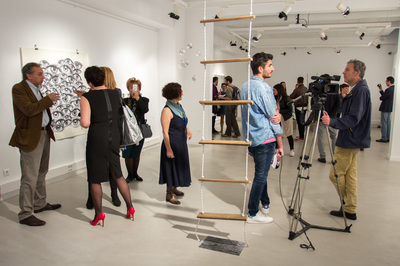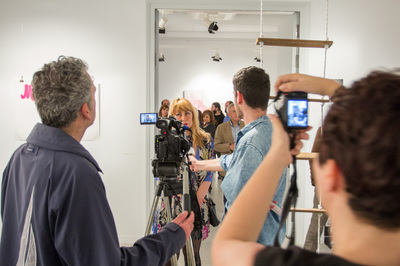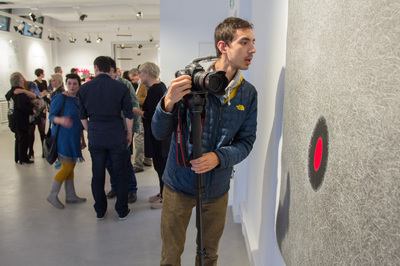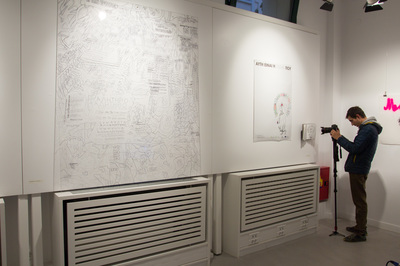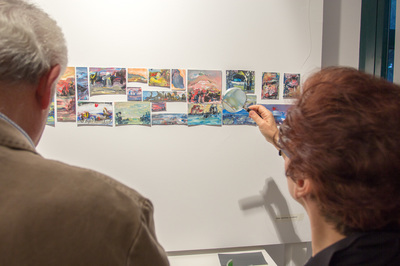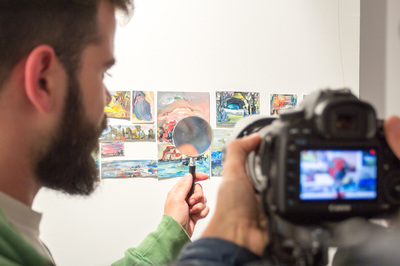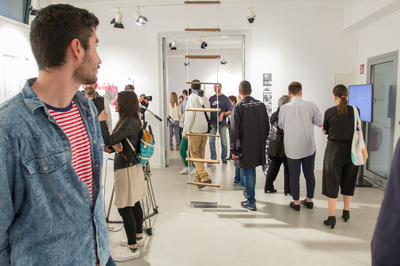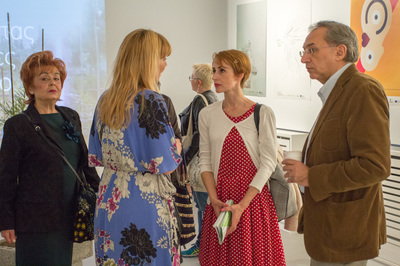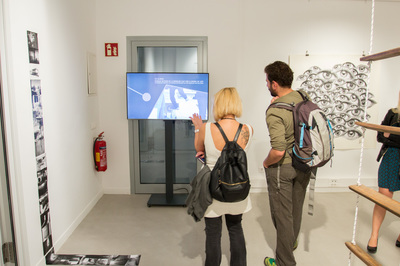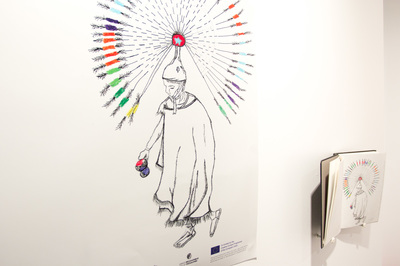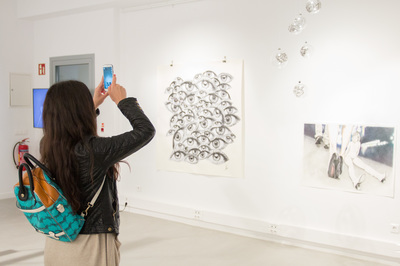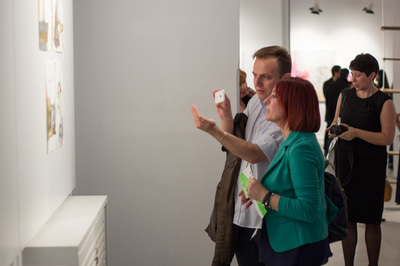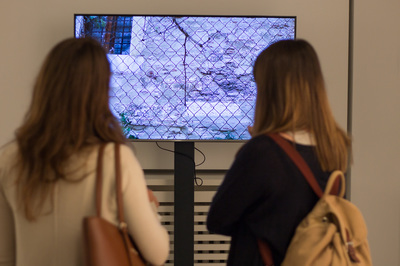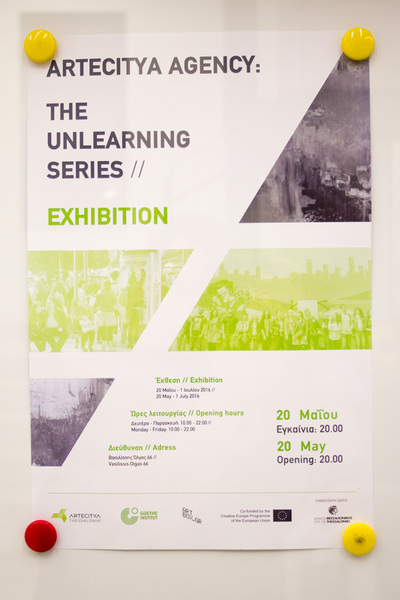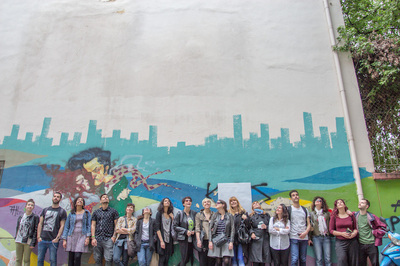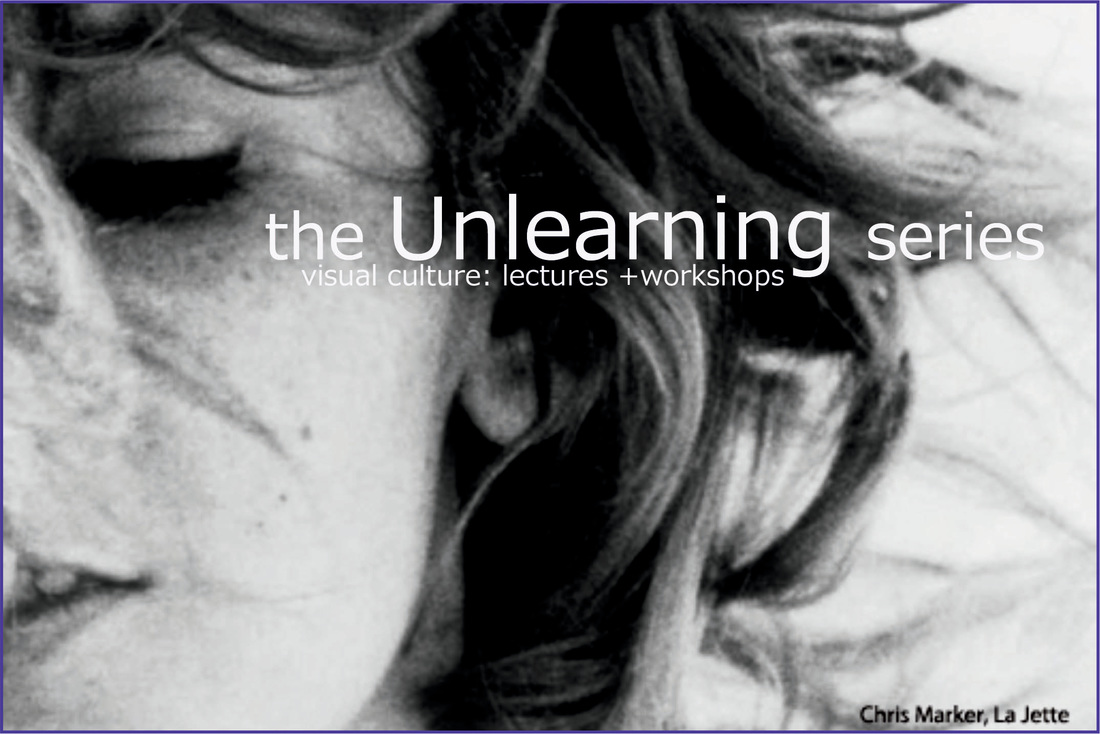The UNLEARNING series
|
#agency #mini-hub
|
thessaloniki, november 2015 - May 2016
|
"The Unlearning Series is a concept by art theorist Eleni Garoufalia, implemented in the framework of Artecitya with the contribution of artist Rania Emmanouilidou (les yper yper). It is a series of lectures and workshops, that aim to provide the knowledge, tools and inspiration to develop contemporary cultural practices, in order to participate in the complex spatial state of today’s reality, using the materials and strategies of philosophy, critical geography, political theory and contemporary art.
Unlearning is not a state of non-learning but a practice of a new set of collective knowledge production: the extract of questions that are unframed and the answer with a notion that is not pre-determined. Therefore, it could be described as entering the process of enactment on a daily basis, "not from the ‘beginning’, but from the ‘middle’ and considering that a personal responsibility" (courtesy of Irit Rogoff’s lectures on Globalisation). The strategy of Unlearning, similar to the one that Jean Luc Nancy named Unworlding, is an active position of collective urgency, according to which one tries to find different points of departures, create new points of entry and participate in the everyday by connecting to different sets of knowledge and supplies. |
From this perspective, the lectures and workshops concentrate on strategies that interfere with local/global phenomena and new modes of citizenship that are produced at the borders of geo-political processes.
The lectures given by Eleni Garoufalia investigate how culture is experimenting with ‘globalization’ and discuss whether there is a new set of embodied practices within art and politics, theory and practice, analysis and action, emerging on an urban/universal scale. Each lecture focuses on a cultural frame of thinking that attempts to engage with, rather than illustrate, urgent social, cultural and political conditions, through the philosophical positioning of philosophers such as Henri Lefebvre, Giorgio Agamben, Etienne Balibar, Jean Luc Nancy, Andy Merrifield, Stefano Harney & Fred Moten. The lectures are accompanied by a broad selection of theoretical and literature texts and a selection of film and video materials that are shown in situ. The workshops lead by Rania Emmanouilidou introduce artistic practices and art-created-on-the-streets approaches, as an attempt to release political and cultural possibilities, and to outline the urban encounter of political activists, curators, artists, organisers, editors, funders, philosophers and citizens as they explore and aestheticize visual knowledge. The workshops do not approach practices as they are, but as they may become. Spatial practices invite citizens to self-organised ensembles of social life that are launched in the everyday. The purpose is to twist oneself inside out to become significant again, by enacting events and practices of knowledge in the everyday, rather than illustrate a series of know-how. Simple, tiny everyday practices in social space may introduce a new set of unexpected relations to imagine and realise social life otherwise. The shift from representation to investigation and participation requires a collectivity, a spatialization of shared rights, a joined intervention as another possible way of living together. Ultimately, the workshops empower citizens to actively contribute on the formations of social space and be a part of its complex language. |
|
Eleni Garoufalia was a PhD Associate Researcher in Visual Culture department, Goldsmiths, University of London (2013-2014) and is a PhD candidate in political philosophy and cultural practices in Fine Arts department, Cyprus University of Technology, in which she taught Modern, and Contemporary Art and Theory, as a Special Scientist. Her research focus is on citizenship, as a negotiated process between subjects, and on spatial theory as a social process. She graduated from Goldsmiths with an M.A in Visual Culture, specifically on performative acts of participation that lead to the curating of the Return Call, Singularities in Transit, exhibition (Qbox gallery); framed by Prof. Irit Rogoff’s lecture. She taught experimental art history courses in private schools, organized the Parallel Program of International Contemporary Art Fair of Athens (Art-Athina), worked at the Ileana Tounta Contemporary Art Center and collaborated with sculptor Takis at the Research Center for the Art and the Sciences.
|
Her essays have been published, among others, in the State Museum of Contemporary Art’s visual arts panorama, the Thessaloniki Biennale of Contemporary Art, the AICA Hellas, the Macedonian Museum of Contemporary Art, the European Doctoral Conference in Culture, Criticism and Creativity.
Rania Emmanouilidou is an artist. She has exhibited extensively in Greece and abroad and she has co-curated and organised exhibitions in collaboration with institutions such as the State Museum of Contemporary Art, Thessaloniki Biennale and the Beltsios Collection. She has long experience in teaching painting and contemporary art practices to various age groups. She is a member of the collective Les Yper Yper and Artistic Director of the Margaris Foundation (Amfilochia, Greece). |
participation info
The Unlearning series is addressed to all members of the public, especially to young practitioners and students from the creative sectors.
It consists of a series of 6 3-hour lectures and corresponding workshops.
The results of the workshops are publicly presented in an exhibition in May-July 2016.
It consists of a series of 6 3-hour lectures and corresponding workshops.
The results of the workshops are publicly presented in an exhibition in May-July 2016.
programme & lectures' outline
|
Wednesday, 11.11.2015
"Metropolis" – screening of the 1927 Fritz Lang movie, with the original score re-orchestrated and conducted live by Helmut Imig, Thessaloniki Concert Hall (M1) In collaboration with Thessaloniki Concert Hall and the State Orchestra of Thessaloniki. In the framework of the 56th Thessaloniki International Film Festival. Thursday 12.11.2015, 18.00-20.00 Goethe-Institut Thessaloniki, Auditorium (66 Vassilissis Olgas Avenue) 0. Introduction: Ιn Companionship Unlearning is a process, during which we practice collectivity, engage with a new set of knowledge production and introduce different practices into our everyday. The lectures present contemporary critical perspectives, as a strategic plan for human encounter, infrastructures of feelings and non-expected possibilities. The lectures & workshops series aim to create a conceptual toolbox of perceptions and practices. Lecture by Eleni Garoufalia followed by conversation with Helmut Imig and Rania Emmanouilidou. Monday 23.11.2015, 11.30-15.00 Goethe-Institut Thessaloniki, Auditorium (66 Vassilissis Olgas Avenue) Lecture #1: The Encounter The urban serves no purpose and has no reality outside of human reality, outside of exchange, outside of union, outside of human proximity and human encounter (Andy Merrifield). The ‘spatial turn’ introduced by Henri Lefebvre in the 1990’s that shifted our understanding of space from a container to a social process. Saturday, 28.11.2015, 11.00-15.00 Goethe-Institut Thessaloniki, Artecitya Room (66 Vassilissis Olgas Avenue) Lecture #2: Transmission Where did logistics get this ambition to connect bodies, objects, affects, information, without subjects, without the formality of the subjects? (Stefano Harney & Fred Moten). In 2013, Professors Stefano Harney and Fred Moten published the Undercommons, a book and “state of mind” that invite to self-organised ensembles of social life and challenge a retracing of concepts such as policy, planning, logistics and governance. |
Saturday, 5.12.2015, 11.30-15.00
Lecture #3: Shared Citizenship The desire to read ourselves through other people’s personal archives and experiences (Irit Rogoff) and to invest on new ways of practicing citizenship. Etienne Balibar’s concept of citizenship as a social process of negotiation between subjects, how the ‘stranger’ became the ‘enemy’ and the strategy of co-citizenship, through tiny, everyday acts that transform the notion of participation. Saturday, 12.12.2015, 11.30-15.00 Lecture #4: World Creating “Nothing” as a dynamic cultural perception of enormous political potentials. Starting from “nothing”, from necessity, because of necessity is a point of entry to rethink (“unthink”) of the world we live in. Jean Luc Nancy puts up an argument on imaging the world differently: a philosophical approach about what it means to confront reality not as it is but as it could become and act like that has already been accomplished. Saturday, 16.01.2016, 11.30-15.00 Lecture #5: In the surround By destabilizing the ties that situate you in a chronological time, thus you make yourself contemporary of your own time. What is Contemporary? Agamben’s famous riddle theory about contemporaneity aims at detaching yourself from the necessities of time and space, that is, placing yourself slightly outside an ‘imposed’ chronological and historical frame in order to respond to a contemporary urgency. Saturday, 23.01.2016, 11.30-15.00 Lecture #6: Shipped The capacity to live on each other as means and to connect with other modes of supplies in order to deal with the political and economic paradox. (Stefano Harney, Fred Moten & Jean luc Nancy). Irit Rogoff’s ‘smuggling’ is not to be described as a series of adventurous strategies. “It, simply, acknowledges that participating in a reality in crisis, also means that you are a part of a different production of knowledge. It is an effort to understand ourselves and our work as vehicles for the production of new subjects, since the forms we have inherited do not accommodate the complex realities we are trying to live out”. |

